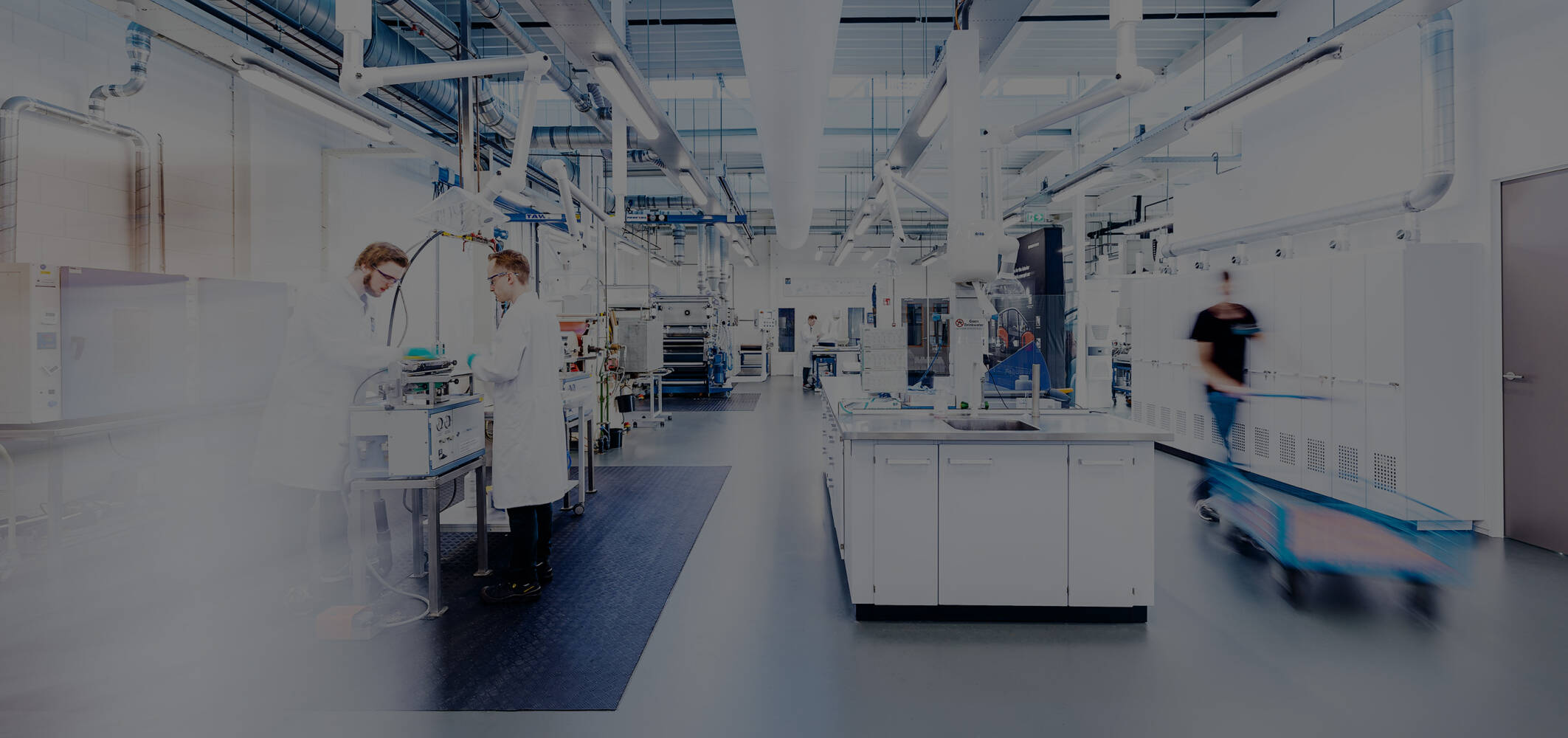

Back to overview

Scroll
down
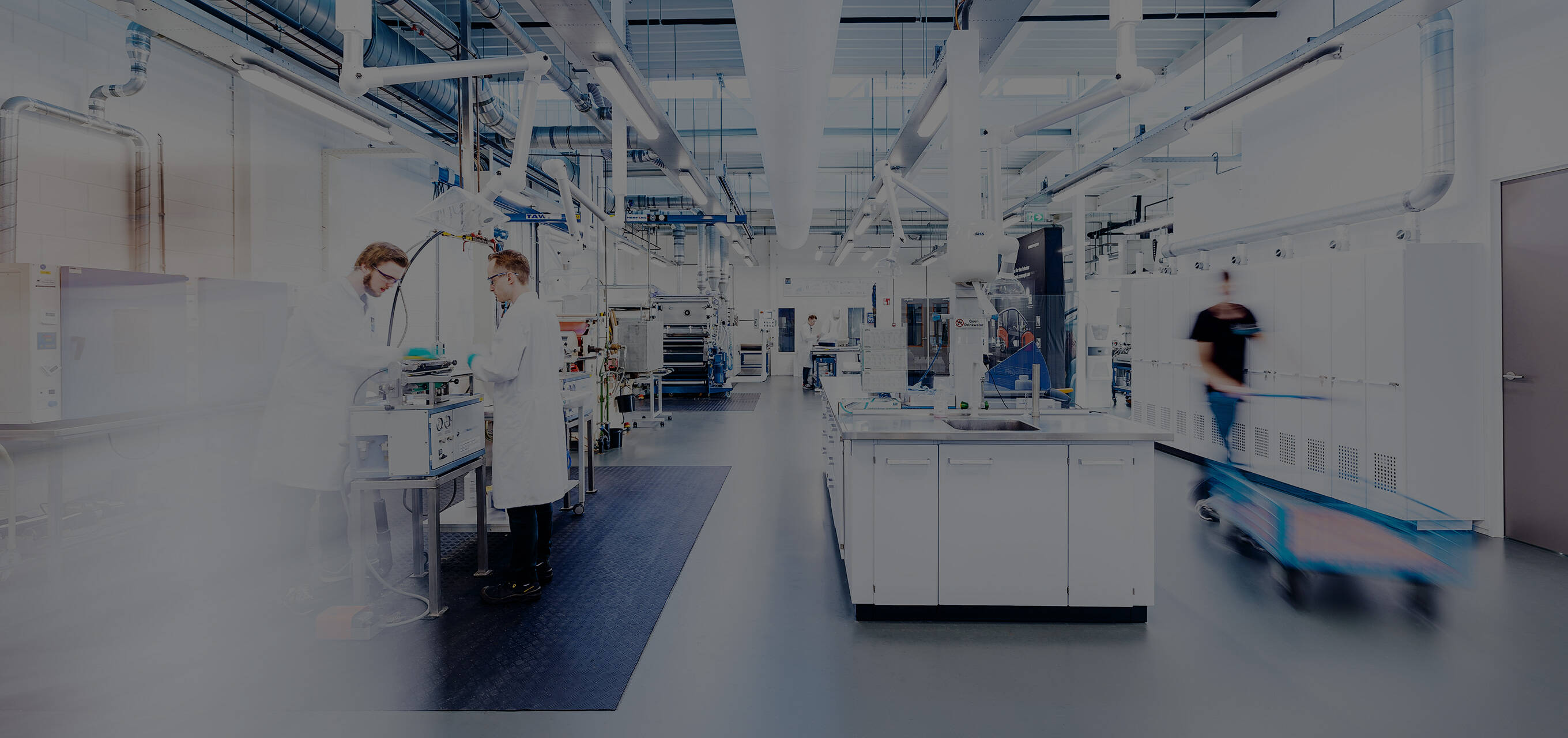
Welcome to Stahl’s ESG Report 2021 – and my first welcome message as the company’s CEO. In July 2021, I took over from Huub van Beijeren, who retired after 13 successful years at the helm. It was a strange and challenging year in which to start: the COVID-19 pandemic was still in full force, highlighting more than ever the importance of people and partnership.
Moving towards more responsible chemistry, together
Stahl’s response to the pandemic was just one example of how seriously the company takes responsibility for its impact, not only on our own employees but on the wider world. As someone who values sustainability deeply, this was one of the reasons I joined the company.
In my first year as CEO, I have been impressed by the progress Stahl has made. The company’s ambitious ESG Roadmap to 2030 has continued to drive our efforts towards more responsible chemistry. The roadmap targets established for 2023 and 2030 cover our most important impacts across the three broad areas of environment, social and governance.
Achieving these targets will help us continue to create more responsible chemistry that enables better living for more people. But we can’t do it alone; teamwork, collaboration and partnership within Stahl and throughout the supply chain are vital. To ensure we make the most out of this powerful strategy, we held webinars for all Stahl employees in 2021, explaining the goals, the content, and everyone’s role in achieving the targets.
Our successes as a company are the result of collaboration – both with external partners and internally with colleagues. People’s health and safety is our priority, and there is still work to be done to ensure there are no injuries among employees. Further to this, we launched a safety survey in 2021 and had an impressive 97% response rate from our employees. We also continue to work towards our diversity and inclusion targets; in particular, we aim to have more women in leadership positions.
We celebrated many achievements this year. We were awarded EcoVadis Gold rating, placing us in the top 5% of companies assessed by EcoVadis. We were proud to achieve Level 3 status in the ZDHC Gateway compliance module for 1,631 chemicals in the Stahl portfolio – an achievement we will continue to build on. And our research into non-fossil fuel technology continued in 2021 with the release of our renewable carbon-based product portfolio Stahl Ympact™.
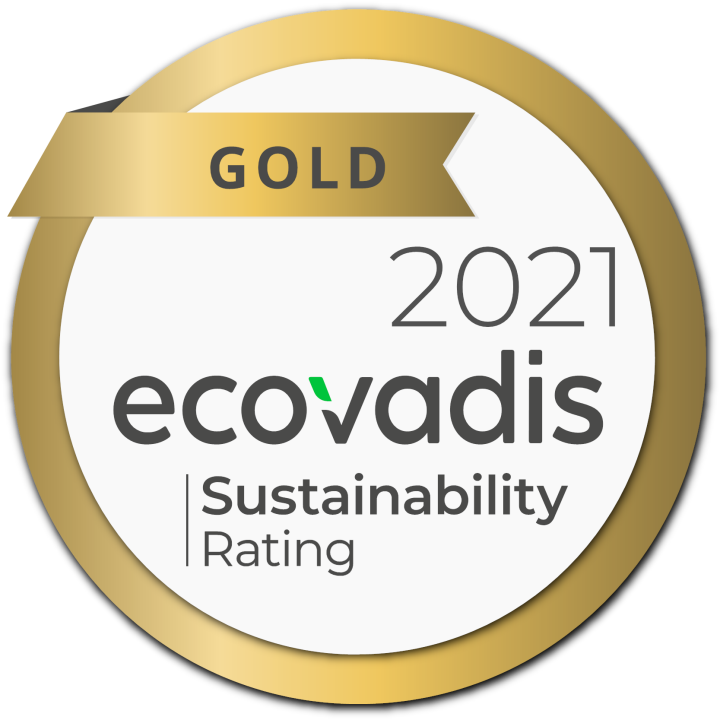
Climate change has been a major focus for us in 2021. This year, we drafted Stahl’s first Climate Resilience and Adaption Plan, in which we outline targets and actions we’re taking on climate change mitigation. We also attended COP26 in Glasgow, where we announced new plans to reduce our Scope 3 GHG emissions.
Stahl’s mission is to be the go-to partner at the center of a truly sustainable value chain, providing high-performing treatments and coating layers for flexible substrates. To continue to fulfil this role, we must remain agile, flexible and innovative. We need to build on our technological strengths to deliver high-quality products that improve lives, while minimizing their negative impact on the world.
If you have comments or questions about this report and our ESG work, you are welcome to contact us. Together we are already making chemistry more responsible; we look forward to what we can achieve in the future.
Maarten Heijbroek
CEO, Stahl
Stahl’s key ESG milestones in 2021
In 2021, Stahl took steps towards achieving the targets set out in our ESG Roadmap to 2030. Here are some of the year’s key milestones.
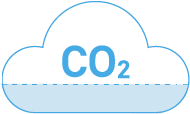
Reduction in CO2 intensity Scopes 1 & 2 (tCO2-eq/ton produced, 2021 vs 2020)
16%
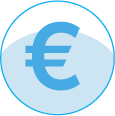
of sales revenue from ZDHC Gateway certified products
63%
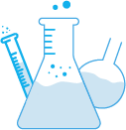
products with available Life Cycle Assessment data
50

of employees participated in the health & safety survey
97%

of the management positions held by women
25%

New human rights policy introduced

Ecovadis Gold rating achieved

New CEO appointed
2021 Key results
To create responsible chemistry that meets tomorrow’s needs, Stahl has set out an ESG Roadmap to 2030. Targets and KPIs are set out under three pillars: Environmental Impact, Social Impact, and Governance.
Doing well by doing good
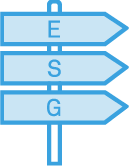
ESG Roadmap to 2030
- Ethical behaviour
- Diversity in leadership
- ESG incentives
- Supply chain
Governance (G)
- Health & safety
- Human capital
- Human rights
- Social commitment
Social (S)
- Climate change & climate resilience
- Water
- Stahl products
- Raw materials
Environment (E)
Explore Stahl’s ESG Roadmap to 2030
At Stahl, we are committed to being a catalyst for positive change. To achieve this, we need clear direction and a way track our performance – the ESG Roadmap to 2030 helps us do that.
The Roadmap is a list of commitments and targets for 2023 and 2030, supported by key performance indicators (KPIs) and connected to the UN Sustainable Development Goals (SDGs).
The targets we set out in the ESG Roadmap and the KPIs we use to track our progress remained the same in 2021. We monitored our progress during the year with the ESG Scorecard, including with a midterm status update.
In April 2021, we presented the Roadmap to all Stahl employees in a live webinar, giving them the opportunity to ask questions.
Stahl’s ESG commitments
Continuously minimize direct environmental impact and carbon footprint.
- Ensure a safe working environment and a diverse culture for our employees.
Consolidate Stahl’s ESG leadership position by engaging with influential NGOs and IGOs on responsible chemistry, positioning ourselves as a trusted and knowledgeable partner.
Nurture diversity and inclusion to continuously improve employee skills and company attractiveness.
Foster ethical behavior by providing training and robust compliance programs.
Select and engage with suppliers based on recognized ESG standards.
Promote a sustainable development mindset, to motivate employees throughout our organization.
The KPIs are under the three ESG pillars of Environmental Impact, Social Impact, and Governance. This report is structured following the same pillars; explore the report to find out how we are progressing in each area.
Accountability and transparency
We are assessed on our ESG performance by a third-party auditor (Deloitte in 2021) selected by Wendel, Stahl’s majority shareholder. Wendel also monitors our EFPD (EU Law, Extra Financial Performance Declaration) and Duty of Care (French law on human rights and the environment) and Sapin II (French law on corruption) compliance. The annual reporting of Stahl’s ESG performance is available in the Wendel Universal Registration document.
Creating responsible chemistry in leather solutions and high-performance coatings





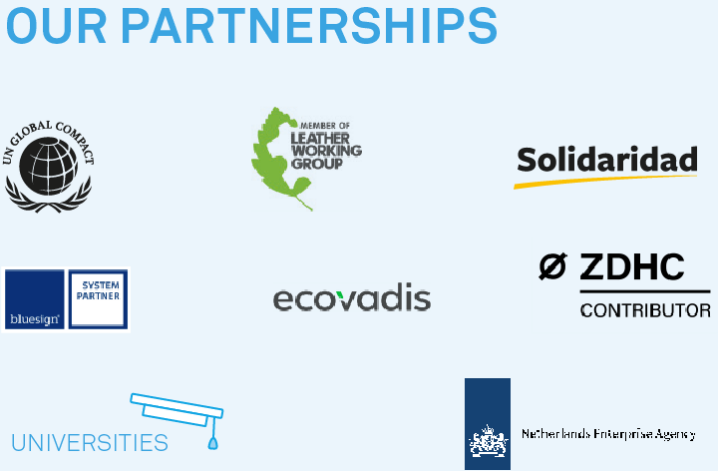
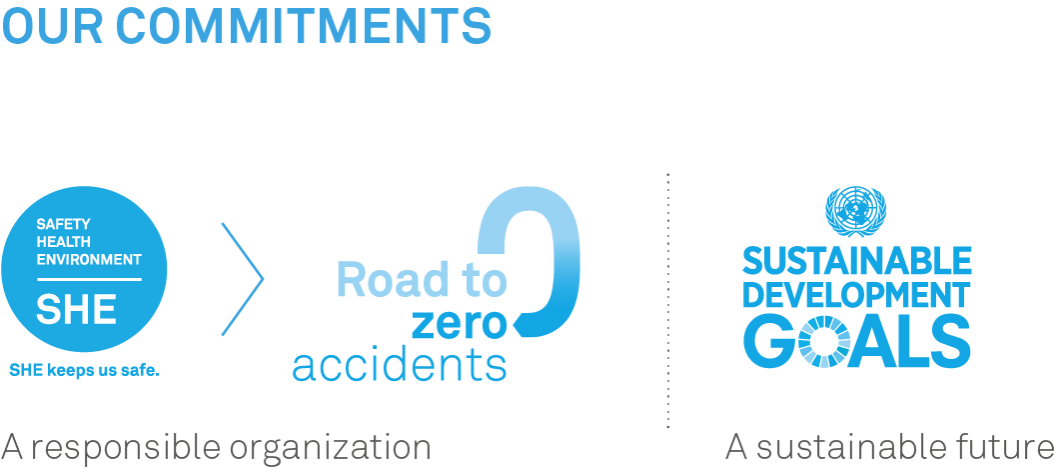

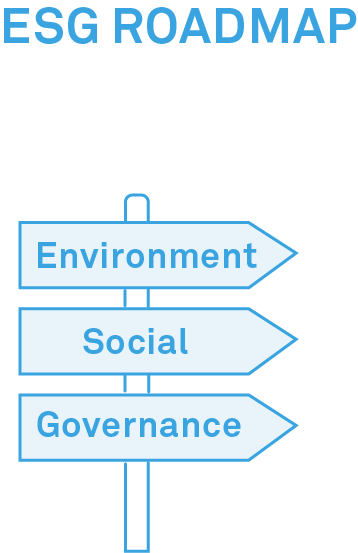


We create specialty chemistry for coatings, processing, and the treatment of many different everyday materials.
You will find a little bit of Stahl everywhere
About Stahl
Stahl is the world leader in the specialty chemistry of coatings, processing and treatments. Our products add functionality, durability and comfort to many different materials used in daily life. Through our continuous focus on innovation and improving environmental footprint, our unique service model and premium solutions add value to the automotive, garment, footwear, luxury bags and home furnishing consumer segments. We use two primary brands (Stahl and PielColor).
While there were no significant changes to the organization in 2021, like all companies in the sector, we were affected by severe global supply chain shortages and price increases for our raw materials and energy sources.
Stahl develops and delivers necessary chemistry that makes everyday materials look good, feel softer, resist scratching, repel stains, and last longer. We collaborate closely with our partners to provide high-performing, low-impact solutions that drive the transition to a fully sustainable value chain and chemistry based on renewable feedstocks.
Our place in the value chain
Stahl’s registered headquarters are in Europe (the Netherlands), and we have 11 manufacturing sites (The Netherlands, France, Germany, Italy, Spain, Brazil, Mexico, USA, India, China and Singapore) and 37 strategically located technical service laboratory facilities and sales support offices in 22 countries. 60% of our products are produced in Europe.
We operate mainly (in alphabetical order) in Argentina, Bangladesh, Brazil, China, France, Germany, India, Indonesia, Italy, Japan, Mexico, Netherlands, Pakistan, Singapore, Spain, Turkey and the USA. We are active (producing, sourcing and selling) in more than 70 countries.
Stahl manufactures products at sites around the world or at outsourced locations via service agreements. Our raw material suppliers are chemical companies and include most of the major global chemical corporations. In addition to our 1,458 direct suppliers for raw materials in 2021 (of which 80% is rated in the EcoVadis system on Labor & Human Rights, Ethics, Sustainable procurement and Environment), our supply chain also included 502 suppliers for logistics (44% rated in EcoVadis) and 4,823 suppliers for other products and services, such as work clothes, office suppliers and laboratory equipment.
Maarten Heijbroek
CEO, Stahl
“ Stahl’s four-pillar strategy will ensure the company continues to deliver innovative high-performance solutions and technologies to its partners in the value chain, attract and retain top talent throughout the company, and be an exciting, inclusive, environmentally and socially responsible place to work. ”
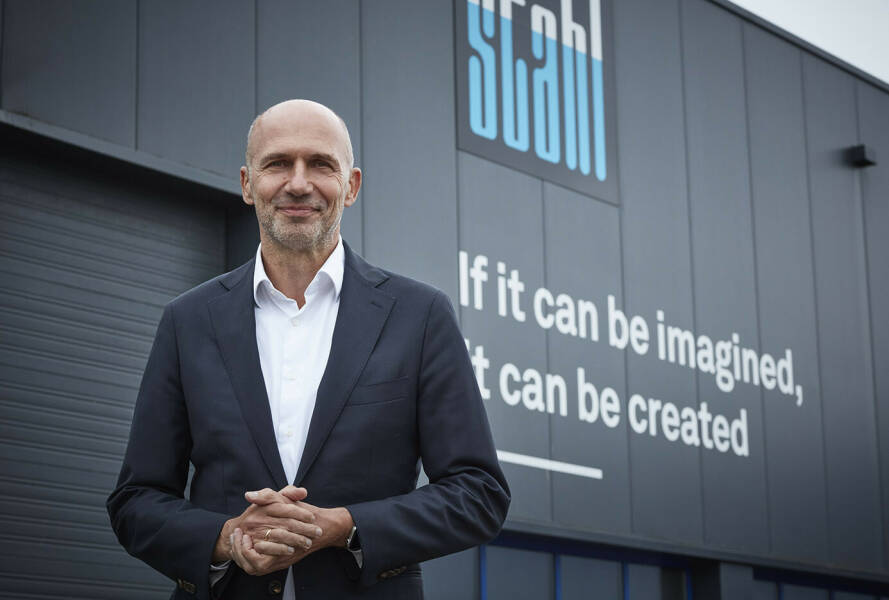
- Renewable feedstocks – by switching to renewable feedstock in our supply chain we can eliminate fossil carbon and mitigate climate change.
- Open innovation – enables us to innovate more efficiently and reduce environmental impact in areas such as water quality, renewable feedstocks and advanced functional chemistry.
- Digital transformation – our 10-year digital transformation strategy includes the internet of things, block chain and artificial intelligence.
- Sustainable development – chemicals as the building blocks of low-carbon, zero-pollution, energy efficient materials.
Four strategic pillars
With our world facing a series of pressing environmental challenges, the chemical industry can play a key role in enabling high living standards within planetary boundaries. As we look to the journey ahead, we have identified four areas of strategic importance:
By applying our focus and efforts to these areas and working with partners throughout the value chain, we are raising the bar and delivering more value for our employees, customers, partners, investors, and society at large.
Four strategic pillars
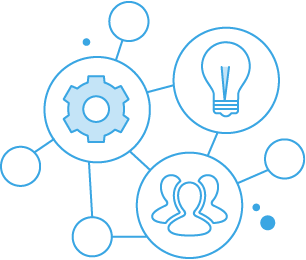
Open innovation
Open innovation is the process of collaborating with external individuals, teams and organizations on the development of an agreed project or to reach a shared goal. In particular, open innovation offers the opportunity to innovate more efficiently, explore new markets, better address customer demands, and improve the environmental impact of our solutions. To do this, Stahl will focus on areas where our capabilities allow us to seize opportunities for positive impact: renewable feedstocks, water quality, and advanced functional chemistry.
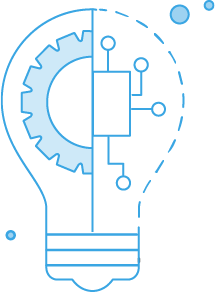
Digital transformation
Stahl is introducing a ten-year digital transformation strategy that incorporates everything from unified communications, the internet of things and artificial intelligence to e-commerce and blockchain. This journey will change the way we work with our customers, our supply chain, our investors and our own employees, and help us create more value for our stakeholders.
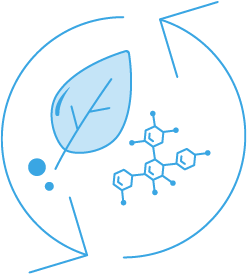
Renewable feedstocks
The most significant contribution the chemical industry can make to mitigating climate change is to replace fossil fuel as the raw material in its products. Transitioning to renewable feedstock means eliminating non-renewable carbon resources such as coal, oil and natural gas as feedstocks for organic chemistry. Stahl’s efforts to drive renewable feedstock chemistry and support a lower-fossil-carbon economy starts with our own innovation, but also involves technology partnerships and involvement in advocacy groups, like the Renewable Carbon Initiative.
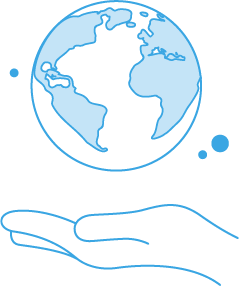
Sustainable development
Our sustainable development practices are marked by a commitment to social progress, environmental balance and economic growth. We are committed to all 17 Sustainable Development Goals, which were launched by the United Nations as a common 2030 Agenda requiring active involvement of individuals, businesses, civil society and countries around the world. In 2020, we launched a new ESG roadmap with concrete goals for 2023 and 2030.

Back
to top

Back to overview

Back
to top
Four strategic pillars
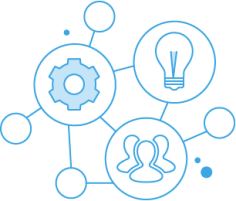
Open innovation
Open innovation is the process of collaborating with external individuals, teams and organizations on the development of an agreed project or to reach a shared goal. In particular, open innovation offers the opportunity to innovate more efficiently, explore new markets, better address customer demands, and improve the environmental impact of our solutions. To do this, Stahl will focus on areas where our capabilities allow us to seize opportunities for positive impact: renewable feedstocks, water quality, and advanced functional chemistry.

Digital transformation
Stahl is introducing a ten-year digital transformation strategy that incorporates everything from unified communications, the internet of things and artificial intelligence to e-commerce and blockchain. This journey will change the way we work with our customers, our supply chain, our investors and our own employees, and help us create more value for our stakeholders.
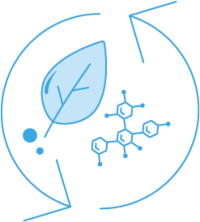
Renewable feedstocks
The most significant contribution the chemical industry can make to mitigating climate change is to replace fossil fuel as the raw material in its products. Transitioning to renewable feedstock means eliminating non-renewable carbon resources such as coal, oil and natural gas as feedstocks for organic chemistry. Stahl’s efforts to drive renewable feedstock chemistry and support a lower-fossil-carbon economy starts with our own innovation, but also involves technology partnerships and involvement in advocacy groups, like the Renewable Carbon Initiative.

Sustainable development
Our sustainable development practices are marked by a commitment to social progress, environmental balance and economic growth. We are committed to all 17 Sustainable Development Goals, which were launched by the United Nations as a common 2030 Agenda requiring active involvement of individuals, businesses, civil society and countries around the world. In 2020, we launched a new ESG roadmap with concrete goals for 2023 and 2030.
- Renewable feedstocks – by switching to renewable feedstock in our supply chain we can eliminate fossil carbon and mitigate climate change.
- Open innovation – enables us to innovate more efficiently and reduce environmental impact in areas such as water quality, renewable feedstocks and advanced functional chemistry.
- Digital transformation – our 10-year digital transformation strategy includes the internet of things, block chain and artificial intelligence.
- Sustainable development – chemicals as the building blocks of low-carbon, zero-pollution, energy efficient materials.
Four strategic pillars
With our world facing a series of pressing environmental challenges, the chemical industry can play a key role in enabling high living standards within planetary boundaries. As we look to the journey ahead, we have identified four areas of strategic importance:
By applying our focus and efforts to these areas and working with partners throughout the value chain, we are raising the bar and delivering more value for our employees, customers, partners, investors, and society at large.
Maarten Heijbroek
CEO, Stahl
“ Stahl’s four-pillar strategy will ensure the company continues to deliver innovative high-performance solutions and technologies to its partners in the value chain, attract and retain top talent throughout the company, and be an exciting, inclusive, environmentally and socially responsible place to work. ”

Our place in the value chain
Stahl’s registered headquarters are in Europe (the Netherlands), and we have 11 manufacturing sites (The Netherlands, France, Germany, Italy, Spain, Brazil, Mexico, USA, India, China and Singapore) and 37 strategically located technical service laboratory facilities and sales support offices in 22 countries. 60% of our products are produced in Europe.
We operate mainly (in alphabetical order) in Argentina, Bangladesh, Brazil, China, France, Germany, India, Indonesia, Italy, Japan, Mexico, Netherlands, Pakistan, Singapore, Spain, Turkey and the USA. We are active (producing, sourcing and selling) in more than 70 countries.
Stahl manufactures products at sites around the world or at outsourced locations via service agreements. Our raw material suppliers are chemical companies and include most of the major global chemical corporations. In addition to our 1,458 direct suppliers for raw materials in 2021 (of which 80% is rated in the EcoVadis system on Labor & Human Rights, Ethics, Sustainable procurement and Environment), our supply chain also included 502 suppliers for logistics (44% rated in EcoVadis) and 4,823 suppliers for other products and services, such as work clothes, office suppliers and laboratory equipment.
About Stahl
Stahl is the world leader in the specialty chemistry of coatings, processing and treatments. Our products add functionality, durability and comfort to many different materials used in daily life. Through our continuous focus on innovation and improving environmental footprint, our unique service model and premium solutions add value to the automotive, garment, footwear, luxury bags and home furnishing consumer segments. We use two primary brands (Stahl and PielColor).
While there were no significant changes to the organization in 2021, like all companies in the sector, we were affected by severe global supply chain shortages and price increases for our raw materials and energy sources.
Stahl develops and delivers necessary chemistry that makes everyday materials look good, feel softer, resist scratching, repel stains, and last longer. We collaborate closely with our partners to provide high-performing, low-impact solutions that drive the transition to a fully sustainable value chain and chemistry based on renewable feedstocks.
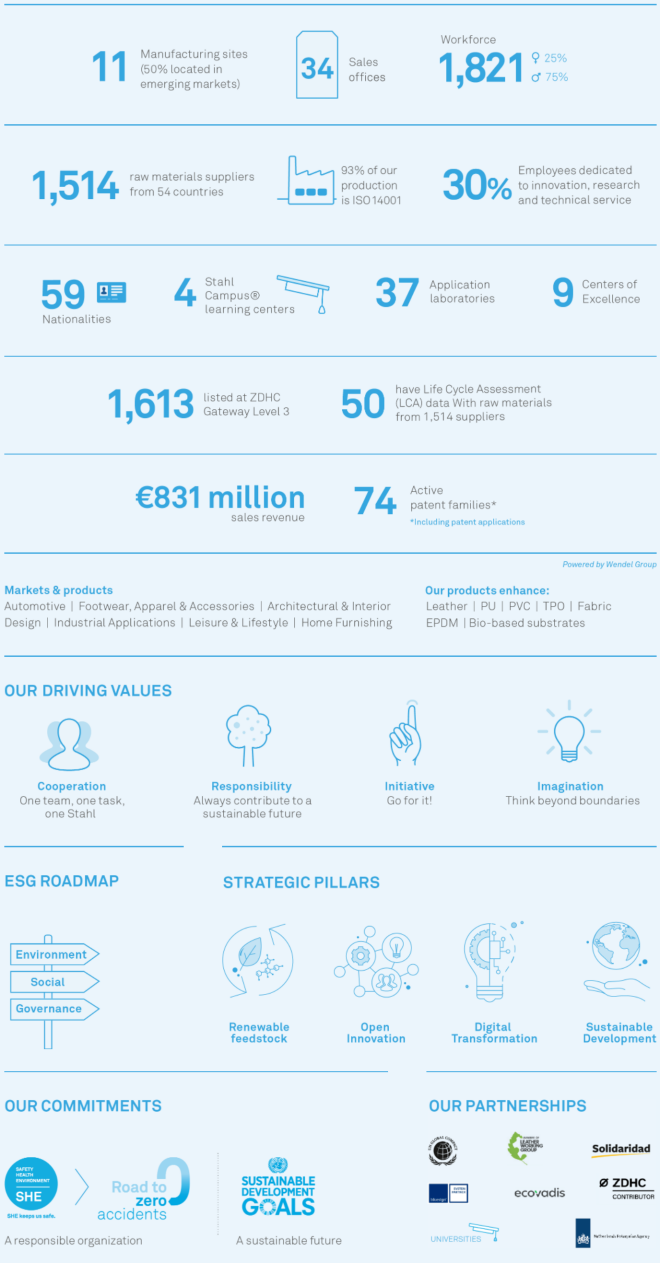
We create specialty chemistry for coatings, processing, and the treatment of many different everyday materials.
You will find a little bit of Stahl everywhere
Creating responsible chemistry in leather solutions and high-performance coatings
Accountability and transparency
We are assessed on our ESG performance by a third-party auditor (Deloitte in 2021) selected by Wendel, Stahl’s majority shareholder. Wendel also monitors our EFPD (EU Law, Extra Financial Performance Declaration) and Duty of Care (French law on human rights and the environment) and Sapin II (French law on corruption) compliance. The annual reporting of Stahl’s ESG performance is available in the Wendel Universal Registration document.
Stahl’s ESG commitments
Continuously minimize direct environmental impact and carbon footprint.
- Ensure a safe working environment and a diverse culture for our employees.
Consolidate Stahl’s ESG leadership position by engaging with influential NGOs and IGOs on responsible chemistry, positioning ourselves as a trusted and knowledgeable partner.
Nurture diversity and inclusion to continuously improve employee skills and company attractiveness.
Foster ethical behavior by providing training and robust compliance programs.
Select and engage with suppliers based on recognized ESG standards.
Promote a sustainable development mindset, to motivate employees throughout our organization.
The KPIs are under the three ESG pillars of Environmental Impact, Social Impact, and Governance. This report is structured following the same pillars; explore the report to find out how we are progressing in each area.
Explore Stahl’s ESG Roadmap to 2030
At Stahl, we are committed to being a catalyst for positive change. To achieve this, we need clear direction and a way track our performance – the ESG Roadmap to 2030 helps us do that.
The Roadmap is a list of commitments and targets for 2023 and 2030, supported by key performance indicators (KPIs) and connected to the UN Sustainable Development Goals (SDGs).
The targets we set out in the ESG Roadmap and the KPIs we use to track our progress remained the same in 2021. We monitored our progress during the year with the ESG Scorecard, including with a midterm status update.
In April 2021, we presented the Roadmap to all Stahl employees in a live webinar, giving them the opportunity to ask questions.

ESG Roadmap to 2030
- Ethical behaviour
- Diversity in leadership
- ESG incentives
- Supply chain
Governance (G)
- Health & safety
- Human capital
- Human rights
- Social commitment
Social (S)
- Climate change & climate resilience
- Water
- Stahl products
- Raw materials
Environment (E)
To create responsible chemistry that meets tomorrow’s needs, Stahl has set out an ESG Roadmap to 2030. Targets and KPIs are set out under three pillars: Environmental Impact, Social Impact, and Governance.
Doing well by doing good

Reduction in CO2 intensity Scopes 1 & 2 (tCO2-eq/ton produced, 2021 vs 2020)
16%

of sales revenue from ZDHC Gateway certified products
63%

products with available Life Cycle Assessment data
50

of employees participated in the health & safety survey
97%

of the management positions held by women
25%

New human rights policy introduced

Ecovadis Gold rating achieved

New CEO appointed
2021 Key results
Stahl’s key ESG milestones in 2021
In 2021, Stahl took steps towards achieving the targets set out in our ESG Roadmap to 2030. Here are some of the year’s key milestones.
Climate change has been a major focus for us in 2021. This year, we drafted Stahl’s first Climate Resilience and Adaption Plan, in which we outline targets and actions we’re taking on climate change mitigation. We also attended COP26 in Glasgow, where we announced new plans to reduce our Scope 3 GHG emissions.
Stahl’s mission is to be the go-to partner at the center of a truly sustainable value chain, providing high-performing treatments and coating layers for flexible substrates. To continue to fulfil this role, we must remain agile, flexible and innovative. We need to build on our technological strengths to deliver high-quality products that improve lives, while minimizing their negative impact on the world.
If you have comments or questions about this report and our ESG work, you are welcome to contact us. Together we are already making chemistry more responsible; we look forward to what we can achieve in the future.
Maarten Heijbroek
CEO, Stahl
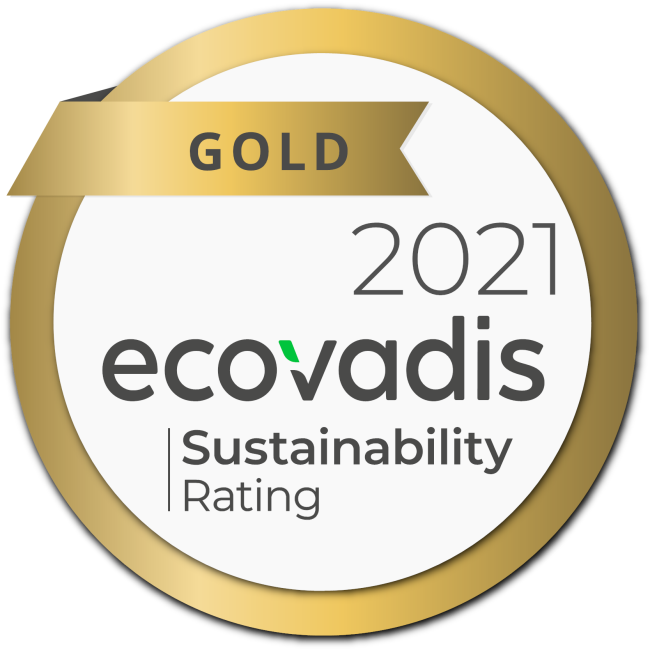
We celebrated many achievements this year. We were awarded EcoVadis Gold rating, placing us in the top 5% of companies assessed by EcoVadis. We were proud to achieve Level 3 status in the ZDHC Gateway compliance module for 1,631 chemicals in the Stahl portfolio – an achievement we will continue to build on. And our research into non-fossil fuel technology continued in 2021 with the release of our renewable carbon-based product portfolio Stahl Ympact™.
Welcome to Stahl’s ESG Report 2021 – and my first welcome message as the company’s CEO. In July 2021, I took over from Huub van Beijeren, who retired after 13 successful years at the helm. It was a strange and challenging year in which to start: the COVID-19 pandemic was still in full force, highlighting more than ever the importance of people and partnership.
Moving towards more responsible chemistry, together
Stahl’s response to the pandemic was just one example of how seriously the company takes responsibility for its impact, not only on our own employees but on the wider world. As someone who values sustainability deeply, this was one of the reasons I joined the company.
In my first year as CEO, I have been impressed by the progress Stahl has made. The company’s ambitious ESG Roadmap to 2030 has continued to drive our efforts towards more responsible chemistry. The roadmap targets established for 2023 and 2030 cover our most important impacts across the three broad areas of environment, social and governance.
Achieving these targets will help us continue to create more responsible chemistry that enables better living for more people. But we can’t do it alone; teamwork, collaboration and partnership within Stahl and throughout the supply chain are vital. To ensure we make the most out of this powerful strategy, we held webinars for all Stahl employees in 2021, explaining the goals, the content, and everyone’s role in achieving the targets.
Our successes as a company are the result of collaboration – both with external partners and internally with colleagues. People’s health and safety is our priority, and there is still work to be done to ensure there are no injuries among employees. Further to this, we launched a safety survey in 2021 and had an impressive 97% response rate from our employees. We also continue to work towards our diversity and inclusion targets; in particular, we aim to have more women in leadership positions.

